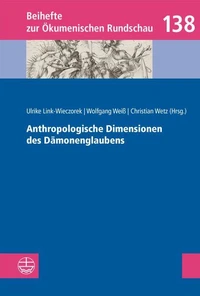Was meinen Christinnen und Christen aus den unterschiedlichen Konfessionen, wenn sie von Gott sprechen? Geht es ihnen wirklich um einen autoritären, alles determinierenden Gott, wie die "Neuen Atheisten" meinen? Nein, sagt dieses Buch. Gott ist Bewegung, Lebendigkeit, Wechselbeziehung, Mitgehen und Mitleiden, auch Gegenbewegung gegen das Unheil.
Das Buch enthält eine Studie, die die Mitglieder des Deutschen Ökumenischen Studienausschusses (DÖSTA) gemeinsam erarbeitet haben.
Sie will den Kirchen aller Konfessionen sowie Hochschulinstituten Unterstützung für ihre Gemeinde-, Bildungs- und Öffentlichkeitsarbeit bieten. Sie ist allgemeinverständlich geschrieben und lädt dazu ein, in den klassischen christlichen Denktraditionen auf die Erfahrbarkeit des lebendigen Gottes zu achten.
[The Question of God Today. New Ecumenical Approaches to Classical Traditions of Thought.
A Study of the German Ecumenical Study Committee (DÖSTA)]
What do Christians from different denominations mean when they speak of God? Are they really concerned about an authoritarian, all-determining God, as the "New Atheists" suggest? No, says this book. God is movement, liveliness, interrelation, going with and suffering with others, also counter-movement against disaster.
The book contains a study jointly carried out by the members of the German Ecumenical Study Committee (Deutscher Ökumenischer Studienausschuss - DÖSTA).
It wants to offer churches of all denominations and university institutes support for their congregational, educational and public relations work. It is written in a generally understandable way and invites to consider the possibility of experiencing the living God in the classical Christian traditions of thought.
Was meinen Christinnen und Christen aus den unterschiedlichen Konfessionen, wenn sie von Gott sprechen? Geht es ihnen wirklich um einen autoritären, alles determinierenden Gott, wie die "Neuen Atheisten" meinen? Nein, sagt dieses Buch. Gott ist Bewegung, Lebendigkeit, Wechselbeziehung, Mitgehen und Mitleiden, auch Gegenbewegung gegen das Unheil.
Das Buch enthält eine Studie, die die Mitglieder des Deutschen Ökumenischen Studienausschusses (DÖSTA) gemeinsam erarbeitet haben.
Sie will den Kirchen aller Konfessionen sowie Hochschulinstituten Unterstützung für ihre Gemeinde-, Bildungs- und Öffentlichkeitsarbeit bieten. Sie ist allgemeinverständlich geschrieben und lädt dazu ein, in den klassischen christlichen Denktraditionen auf die Erfahrbarkeit des lebendigen Gottes zu achten.
[The Question of God Today. New Ecumenical Approaches to Classical Traditions of Thought.
A Study of the German Ecumenical Study Committee (DÖSTA)]
What do Christians from different denominations mean when they speak of God? Are they really concerned about an authoritarian, all-determining God, as the "New Atheists" suggest? No, says this book. God is movement, liveliness, interrelation, going with and suffering with others, also counter-movement against disaster.
The book contains a study jointly carried out by the members of the German Ecumenical Study Committee (Deutscher Ökumenischer Studienausschuss - DÖSTA).
It wants to offer churches of all denominations and university institutes support for their congregational, educational and public relations work. It is written in a generally understandable way and invites to consider the possibility of experiencing the living God in the classical Christian traditions of thought.

 , qui est-ce ?
, qui est-ce ?